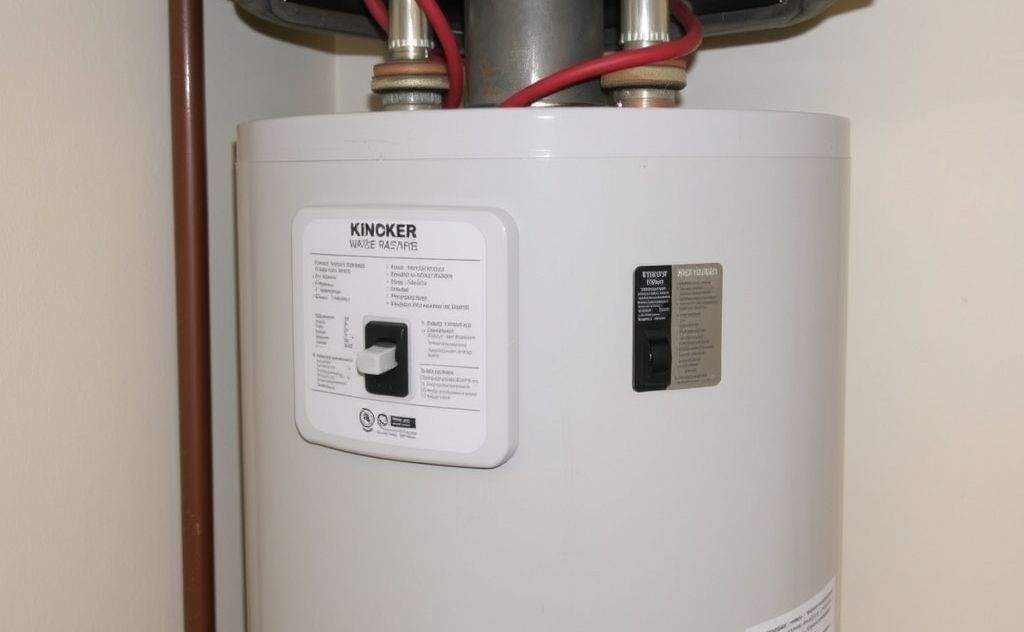Your tankless water heater may keep tripping the breaker due to electrical overload, faulty wiring, a malfunctioning heating element, or a defective breaker, all of which can hinder its performance and safety.
If your tankless water heater keeps tripping the breaker, it’s more than just an annoyance—it’s a sign of an underlying issue that needs attention. Common causes include electrical overload, faulty wiring, or a malfunctioning heating element. Understanding why this happens can help you fix the problem quickly and safely.

Common Causes of Breaker Trips in Tankless Water Heaters
Tankless water heaters require a significant amount of power to operate efficiently. When something goes wrong, the breaker trips to prevent overheating or electrical hazards. Here are the most frequent reasons:
1. Electrical Overload
Tankless water heaters draw a lot of power—sometimes up to 120 amps. If your electrical panel isn’t rated for this demand, the breaker will trip. This often happens when:
- Multiple high-power appliances run simultaneously
- The heater is undersized for household demand
- The circuit lacks proper amperage capacity
Check your unit’s power requirements against your breaker’s rating. If needed, consult an electrician to upgrade your panel.
2. Faulty Wiring or Loose Connections
Poor wiring can cause short circuits or overheating, leading to breaker trips. Signs include:
- Burn marks near electrical connections
- Flickering lights when the heater runs
- Intermittent power loss
If you suspect wiring issues, turn off the power and inspect connections. For safety, consider hiring a professional electrician.
3. Malfunctioning Heating Element
A damaged heating element can cause excessive current draw, tripping the breaker. Symptoms include:
- Inconsistent hot water supply
- Strange noises from the unit
- Error codes on digital displays
Testing the heating element requires a multimeter. If it’s defective, replacement is necessary.

How to Troubleshoot a Tripping Breaker
Before calling a professional, try these steps to diagnose the issue:
1. Reset the Breaker
Turn the breaker off completely, wait 30 seconds, then switch it back on. If it trips immediately, there’s likely a serious electrical problem.
2. Check for Overloaded Circuits
Ensure no other high-power appliances (like dryers or air conditioners) are running on the same circuit. If the breaker holds when other devices are off, you may need a dedicated circuit for your water heater.
3. Inspect the Unit for Visible Damage
Look for:
- Burnt or frayed wires
- Water leaks near electrical components
- Corrosion on terminals
If you find damage, turn off power and contact a technician.
When to Call a Professional
Some issues require expert attention:
- Frequent breaker trips – Indicates a persistent electrical fault
- Burning smells – Suggests overheating or short circuits
- Water near electrical parts – Risk of electrocution
For complex repairs, consult a licensed electrician or plumber. They can safely diagnose and fix problems like faulty wiring or defective components.
Preventing Future Breaker Trips
To avoid recurring issues:
1. Install a Dedicated Circuit
Tankless water heaters perform best on their own circuit. This prevents overloads from other appliances. Check your unit’s manual for specific electrical requirements.
2. Schedule Regular Maintenance
Annual servicing helps catch problems early. A technician can:
- Clean internal components
- Test electrical connections
- Inspect for wear and tear
For more on maintenance, see our guide on tankless water heater descaling.
3. Upgrade Your Electrical Panel
Older homes may need panel upgrades to handle modern tankless heaters. An electrician can assess your home’s capacity and recommend improvements.
Related Issues to Watch For
Other tankless water heater problems can mimic breaker trips:
1. Ignition Failure
If your heater won’t start, it might not be a breaker issue. Check gas supply or ignition components as outlined in our propane heater troubleshooting guide.
2. Temperature Fluctuations
Inconsistent hot water could indicate mineral buildup or a faulty sensor rather than an electrical problem.
Final Thoughts
A tripping breaker is your water heater’s way of signaling a problem. While some issues are simple fixes, others require professional help. Always prioritize safety—never work on electrical components without proper training.
For more information on tankless systems, explore our guide to recirculating pumps.
